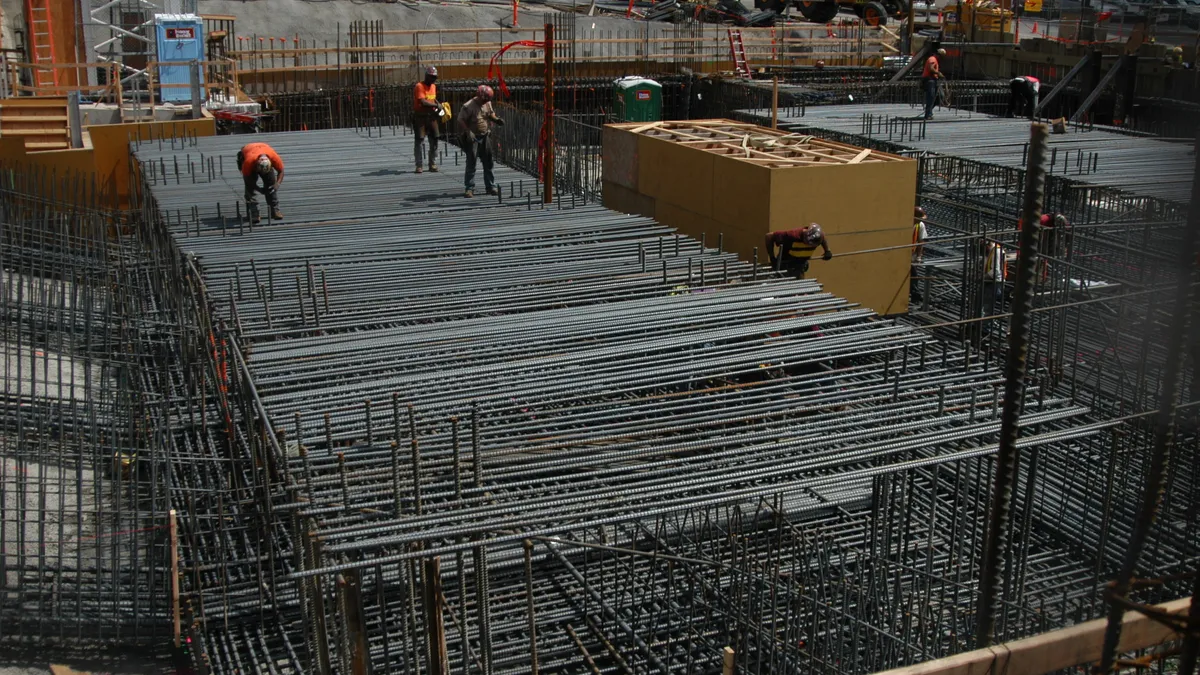Dive Brief:
- Though tariffs will inevitably lead to more price hikes, the current situation is "manageable" according to industrial distributor HD Supply Holdings, which specializes in construction, power and infrastructure.
- On an earnings call last week, CEO Evan Levitt said the cost of steel rebar continues to be the largest impact of tariffs for the company, and the main element in managing the changes is negotiations with Chinese suppliers and setting expectations with customers.
- "Our first priority is to offset that increase in tariff through negotiation of better pricing with our partners in our factories in China. So, when you talk about a 10% tariff, the actual cost increase that we will take will be substantially less than 10%, but we do intend to pass along the cost increase that we can't avoid," Levitt explained.
Dive Insight:
There's a bright spot in the era of tariffs. Levitt said the strong position of the U.S. dollar and heavy subsidies from the Chinese government to suppliers affected by tariffs help the negotiating position of buyers like HD Supply. All the mitigation tactics in play on both sides of the trade war seem, at least according to Levitt, to be working.
"We are seeing signs of stabilizations in the rebar market and expect the year-over-year impact to diminish over the next few quarters," he said.
Levitt expects a slight uptick in revenue from raising prices. But the extra revenue is unlikely to hit the bottom line. In fact, the hit to HD Supply's gross margin on steel rebar is 10 times the price increase on that item at the moment.
The cost of inputs to construction industries is up 6.6% over the last year, according to the producer price index.
Freight and labor inflation are beginning to set in as well. On freight, Levitt said, the answer is simple management and enhanced efficiency.
"The lowest-cost mode is to use our own delivery, move products on our own trucks, and it's using full truckloads versus partial truckloads versus small parcel, so we're working hard on doing that," said Levitt.
Levitt displayed confidence about his company's ability to keep moving forward despite the trade war, but he made clear that tariffs are slow to be felt and what has been a good year for construction may soon slow down as economic forecasts temper. The year 2019, it seems, is when mitigation and management of all these incrementally rising costs will be put to the test.














